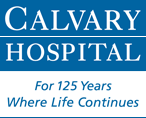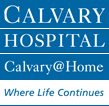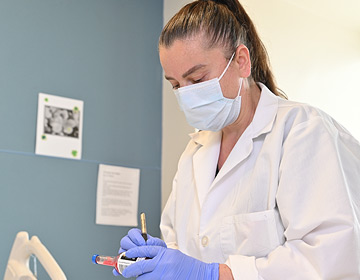This National Hospice and Palliative Care Month, Calvary – with Hospice and Palliative Care programs nationwide – is raising awareness about hospice and palliative care, the highest quality care for people coping with life-limiting illnesses.
“Every year, nearly 1.4 million people living with a life-limiting illness receive care from hospices in this country… These highly trained professionals ensure that patients and families find dignity, respect, and love during life’s most difficult journey,” said Edo Banach, president and CEO of the National Hospice and Palliative Care Organization.
At Calvary, our core values are compassion, caring, commitment, dignity, and non-abandonment.
- Our mission is to provide love and comfort to all in our care; our patients and their loved ones.
- Our team is proud of our work and honored by the trust our patients and their families put in us.
Calvary is the only fully accredited acute care specialty hospital in the United States that exclusively provides palliative care for adult patients with advanced cancer and other life-limiting illnesses.
Our expertise places us at the crossroads of advanced medicine, innovative palliative care, non-denominational pastoral ministry, and state-of-the-art hospice care. We have always been an organization with a unique mission. Our mission and guiding principles have led us to develop a system and philosophy of care that works to ensure that the end-of-life experience for every one in our care is characterized by love, comfort, compassion, and dignity.




